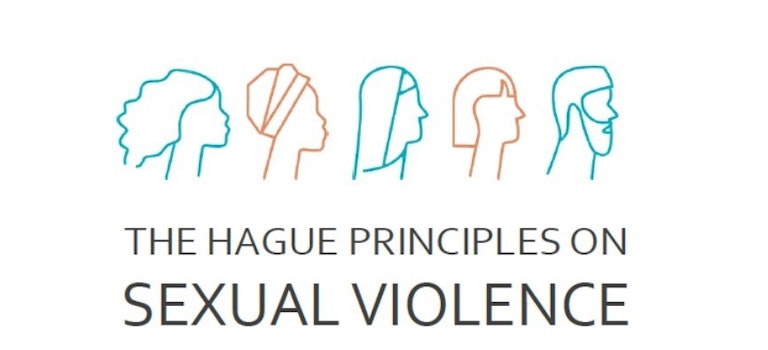An opinion piece by Melinda Reed, Executive Director, Women’s Initiatives for Gender Justice (WIGJ).
The International Day for the Elimination of Sexual Violence in Conflict gives an important opportunity to take stock on efforts to date to address all forms of sexual violence. Eliminating sexual violence starts with understanding all forms of sexual violence, if no survivor is to be left behind.
To gain a better understanding of sexual violence, Women’s Initiatives for Gender Justice (WIGJ) set out to map what makes violence ‘sexual’, especially to survivors, in the context of the Call it what it is campaign. Last year, we gathered input from more than 500 sexual violence survivors from over 25 countries, as well as civil society actors, practitioners and academics. Based on this input, WIGJ translated the lived experience of conflict related sexual violence survivors into practical guidance for legal practitioners and on expanding legal provisions on sexual violence.
This guidance is now known as The Hague Principles of Sexual Violence, which include:
- The Civil Society Declaration on Sexual Violence - providing general guidance to practitioners on what makes violence sexual, especially to survivors. The Declaration explains what may constitute an ‘act of sexual nature’ and indicates when an act of sexual nature may become an ‘act of sexual violence’. It is a document that is firmly grounded in the lived experience of survivors and informed by a wide range of actors who are engaged first-hand in the field of addressing sexual violence;
- International Criminal Law (ICL) Guidelines – translating the Civil Society Declaration into practical guidance for criminal justice practitioners working toward accountability for conflict related sexual violence crimes, explaining the circumstances under which acts of sexual violence, including those identified by survivors, can rise to the level of international crimes; and
- Key Principles for Policy Makers – a tool to implement the Civil Society Declaration for a wide array of policy makers around the world.
The International Gender Champions (IGC) The Hague plays an important role in this campaign. Launched in June 2019, the embassy of Canada and the embassy of Sweden in The Hague created the IGC Justice Impact Group. Its first project focusses on advancing understanding of all forms of sexual violence and creating a working definition of sexual violence in the context of International Criminal Justice. In doing so, it will advance WIGJ’s Call it what it is campaign in seeking to initiate discussions, based on the Civil Society Declaration, on addressing the lack of a clear legal definition of what makes violence ‘sexual’.
Next to moving forward the discussions on the lack of a legal definition in international criminal law, this year WIGJ will focus on the rollout and implementation of The Hague Principles on Sexual Violence. The first step will be a pilot project launched in Colombia in partnership with the well-known women’s rights NGO Women’s Link Worldwide. The project aims to complement established justice initiatives by bringing together civil society actors, practitioners and other relevant stakeholders to promote a broader understanding of all forms of sexual violence. This will also impact on the mapping of sexual violence in conflict and help reveal a more sophisticated understanding of some of the gendered aspects of conflict dynamics.
Additional initiatives to advance the use of The Hague Principles are envisaged in Ukraine and Georgia with Global Rights Compliance (GRC). The BIS App, hosting The Hague Principles, was launched last year by GRC whose managing partner Wayne Jordash is soon to be the latest addition to the list of The Hague International Gender Champions.
In the quest to enhance understanding of the various forms of sexual violence, Women’s Initiatives invites all Gender Champions to lend their voice to the effort to offer a more inclusive and survivor-centred justice-based response to sexual violence.
Melinda Reed, Executive Director, Women’s Initiatives for Gender Justice, International Gender Champion – The Hague
